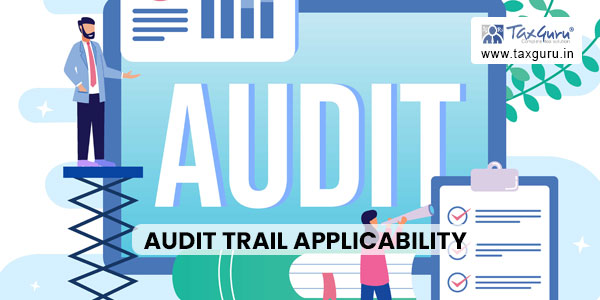What is a Audit Trail?
An audit trail is a record of all the events or activities that have occurred within a computer system or application. It is a chronological sequence of events that provides a way to trace the history of a particular transaction, operation or event.
An audit trail can include information such as who accessed a system, what data was accessed or modified, and when it was accessed or modified. It can also include details about failed login attempts, system errors or any other actions taken within a system.
Audit trails are typically used for security and compliance purposes, as they can help organizations identify and investigate security breaches or data tampering. They are also used to track user activity and ensure accountability, which can be important in regulated industries like healthcare and finance.

Why companies needs to follow audit trail ?
1. Compliance: Many industries are subject to regulations that require them to maintain detailed records of their activities. By following audit trails, companies can demonstrate compliance with these regulations and avoid penalties for non-compliance.
2. Security: Following audit trails can help companies detect and respond to security incidents in a timely manner. By monitoring user activity and system events, companies can identify unauthorized access or changes to data, and take appropriate action to mitigate the risk of a data breach.
3. Accountability: Following audit trails can help companies hold employees, contractors, or other users accountable for their actions within a system. By tracking user activity, companies can identify who made changes to data or accessed sensitive information, and take appropriate action if necessary.
4. Problem resolution: Following audit trails can help companies identify the source of problems or errors within a system. By reviewing system logs and event records, companies can pinpoint the cause of issues and take corrective action.
Overall, following audit trails is essential for maintaining the integrity and security of computer systems and data, and for demonstrating compliance with regulations and industry standards. It is also important for promoting transparency and accountability within an organization.
How Audit Trail Help Auditors (few examples)
As per Companies Act 2013, Section 143(12), if an auditor of a company, in the course of the performance of his duties, has reason to believe that an offence involving fraud is being or has been committed against the company by its officers or employees, he is required to report the matter to the central government within such time and in such manner as may be prescribed.
Additionally, Section 177(9) of the Companies Act 2013 requires the audit committee of a company to establish a vigil mechanism for directors and employees to report concerns about unethical behavior, actual or suspected fraud or violation of the company’s code of conduct. The audit committee is required to oversee the functioning of this mechanism and ensure that adequate safeguards are in place to protect whistleblowers from victimization.
In both cases, maintaining an audit trail is essential to document the evidence of any fraud or unethical behavior that has been reported. This audit trail can help investigators to trace the chain of events, identify the persons responsible and establish the facts of the matter. The audit trail should be maintained in a secure manner to ensure the confidentiality and integrity of the evidence.





